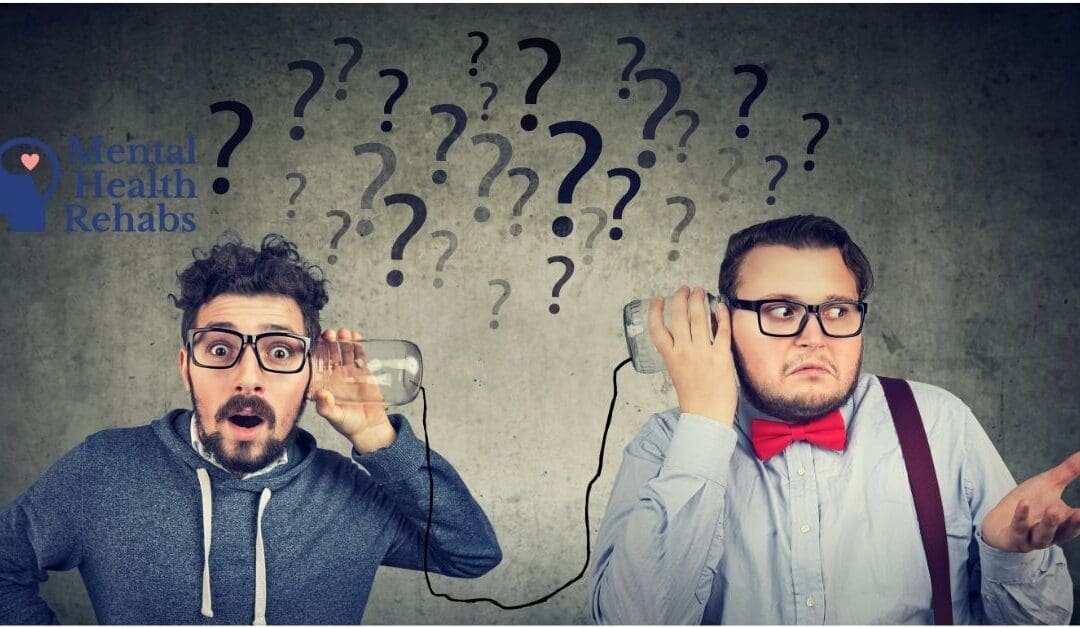Attention deficit hyperactivity disorder, better known as ADHD, is one of the most common mental health disorders among children. Since it rarely ever goes away for good, ADHD issues can be carried long into adulthood. One of the most troublesome things for an ADHD adult can be communication.
Being a bad listener can have serious consequences in a work setting. Being a poor communicator can strain familial and romantic relationships. It can also cause havoc in managing day-to-day lives and cause overall quality of life to suffer. Fortunately, with a bit of self-awareness and a lot of practice, it’s certainly possible for an adult with ADHD to communicate effectively and politely.
How does ADHD affect communication in adults?
ADHD is a neurological disorder that can affect brain development, making it a neurodevelopmental disorder as well. This puts ADHD into the same classification, including other disorders such as autism, intellectual disability, and specific learning disorders.
When brain development is affected, it can cause irregularities that affect how a person thinks and how they interact with others. Many of the hallmark side effects of ADHD directly translate into potential communication hindrances.
Impulsiveness
Hyperactivity and a lack of impulse control are two of the most widely identifiable symptoms of ADHD. In a conversation, they can make it difficult to have a productive conversation and might make them come off as rude. ADHD adults are more likely to interrupt others, speak before thinking, or say things they later end up regretting.
Solution: Be mindful of this tendency and call yourself out when you notice yourself speaking out of turn. It’s a polite way to self-correct that allows you to gracefully turn the conversation back to the person you interrupted.
Easily distracted
Distractions are not conducive to retaining information. This puts individuals with ADHD at a major disadvantage, as an inability to listen and absorb information during conversations can mean missing important details or frequently requiring the speaker to repeat themselves. They may also be prone to straying off-topic, which is equally unconducive to good communication.
Solution: Make it a point to maintain eye contact. It’s a lot harder to let your mind wander when you’re paying close attention to the speaker.
Hyperfocus
On the opposite end of the spectrum is when someone with ADHD is locked in on a topic. While this might not initially sound like a negative, conversations naturally shift both in the topic and the person leading the dialogue. Someone with ADHD may end up fixated on a certain subject, preventing the conversation from moving forward. Or, they may inadvertently end up dominating the conversation and fail to follow normal conversational etiquette.
Solution: Ask questions as a way to force yourself to re-engage with the other speakers. This will demonstrate that you don’t just want to hear the sound of your voice.
Procrastination
Although not a diagnostically recognized symptom of ADHD, it’s well-documented that people with ADHD have a strong tendency to delay tasks and struggle with executive functioning skills. In today’s digital landscape, this can be extremely challenging in a professional setting where emails, phone calls, and texts need to be responded to promptly.
Solution: If you don’t feel capable of responding to correspondence right away, flag important conversations and make a point to respond within 24 hours.
Disorganized
Having thoughts that quickly jump from topic to topic can make it challenging for individuals to organize their thoughts before expressing them. As a result, it’s harder for others to follow their train of thought, and ADHD adults may appear distracted, unprepared, or unprofessional.
Solution: It’s totally fine to say that you need a few moments to gather your thoughts. Plus, you can always ask the speaker to repeat themselves to make sure that what you were planning on saying is on topic.
Forgetfulness
Forgetfulness is a common symptom of ADHD and can have many practical implications on a person’s day-to-day life, such as missing important information or commitments, including dates, names, or appointments. However, it can also impact communication by making it difficult to speak and contribute to discussion. Someone with ADHD may frequently forget things from the past that would’ve been relevant to the current conversation, what they were about to say, or to recall what was said earlier.
Solution: Take notes during conversations. No need to write down everything that was said, just the most important bits. It’s a good idea to give the person you’re talking to a heads-up.
Whether you or a loved one has ADHD and struggles when communicating with others, a mental health professional can help you develop personalized strategies to overcome communication challenges.

